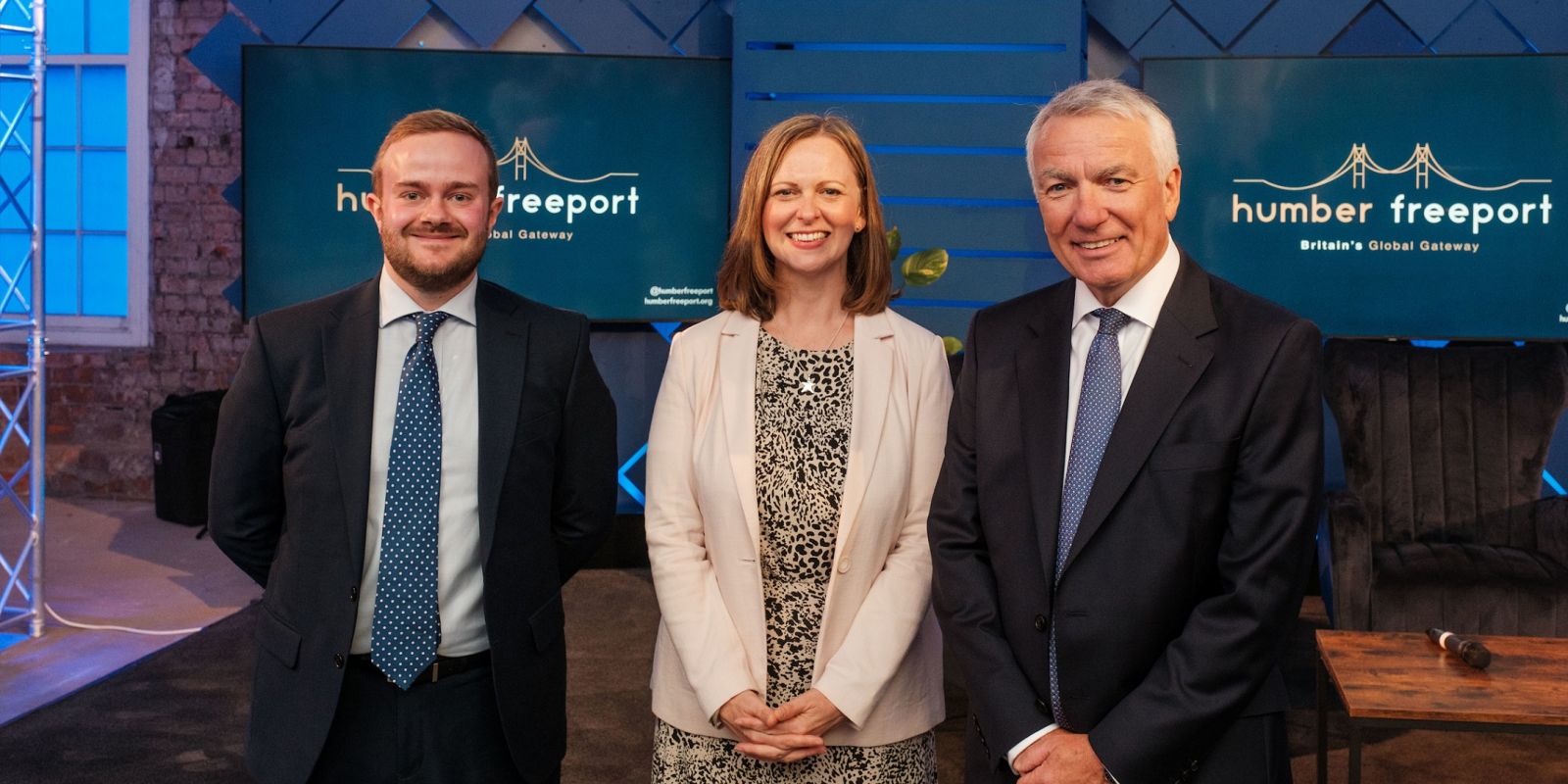Humber Freeport has launched with a mission to drive millions of pounds of investment and create 7,000 new jobs.
Humber Freeport will harness the unique potential and location of the Humber to stimulate economic growth, skills development and inward investment in both established and emerging industries.
Huge opportunities to build on the region’s fast-growing renewable energy industries have already been identified, as well as potential investment in the chemicals, logistics, advanced manufacturing and technology sectors.
Humber Freeport was officially launched at a VIP event at Associated British Ports’ Pump House at Hull’s Alexandra Dock on Friday (14th July) – a stone’s throw from Siemens Gamesa’s wind turbine blade manufacturing facility.
The event, attended by leading figures from the public and private sectors including Ruth Carver, Chief Executive of the Greater Lincolnshire LEP, marked the establishment of the Humber Freeport Company Ltd and signals that the organisation is now fully up and running.
Speaking at the event, Humber Freeport Chair Simon Bird said: “The Humber Freeport has an outstanding and potentially unique opportunity to be not merely a source for economic growth, but the primary vehicle for the delivery of the Government’s levelling up agenda in the Humber.
“Humber Freeport will seek to secure hundreds of millions of pounds of private sector investment and the final business case conservatively estimates that such investment will create at least 7,000 new, mostly skilled jobs.
“This investment will have a transformative effect in lifting the prospects of the region.”
Simon, who is also a Director on the Board of the Greater Lincolnshire LEP, outlined the benefits freeport status brings to companies investing in the tax and customs sites within the Humber Freeport footprint on both banks of the Humber Estuary.
Humber Freeport comprises three defined tax sites – Hull East, Able Marine Energy Park and Immingham, and Goole – each of which offers incentives for businesses operating within the zones.
Benefits include land tax relief, business rate relief, enhanced capital allowances and National Insurance contribution relief for employers.
In addition, a new customs zone which has been created at Grimsby will help unlock growth in the car handling and storage sector, supporting the growth of the electric car industry.
Mr Bird said investors also benefit from “assumed permitted development rights to speed up the planning process” and that “when added to being adjacent to high-quality port operations, the offer becomes even more appealing”.
Mr Bird was joined as a speaker at the launch event by Michael Green, Head of Freeports at the Department for Business and Trade.
Mr Green coordinates the department’s work to establish freeports as national hubs for global trade and investment and promote their attractiveness to prospective investors and export markets overseas.
He said: “Freeports represent a generational shift. Inward investment is hugely important for job creation and regeneration and we are looking to build on the UK’s centres of excellence with targeted Government support.
“Humber Freeport will play a key role in decarbonising industry in what is the largest industrial cluster in the UK.
“It will ensure the region makes the most of the unique assets it holds. Being within four hours of most areas of the UK, the size of opportunity here in the Humber should not be underestimated.”
Freeport status will enable the Humber to maximise opportunities from the net zero transition, in offshore wind and other low carbon technologies, creating highly-skilled jobs and driving investment.
As the largest energy-related cluster in north west Europe, the Humber is often referred to as the UK’s Energy Estuary.
Decarbonisation is one of three key workstreams established by Humber Freeport, alongside skills and innovation, and will be a key focus for the freeport’s work.
Professor Neal Juster, Chair of the Greater Lincolnshire Local Enterprise Partnership, said: “Humber Freeport is a game-changing opportunity to attract investment and create jobs in offshore wind, decarbonisation and advanced manufacturing. It has the potential to boost the economy of the Humber and Lincolnshire by providing investment, highly skilled jobs, and training opportunities.
“We look forward to playing our full role as members of the Humber Freeport Board and to supporting the plans on skills, investment and innovation.”
Our photograph shows peakers at the launch of Humber Freeport. From left, Michael Green, Head of Freeports at the Department for Business and Trade: Jo Barnes of Sewell Estates, a key partner in the Yorkshire Energy Park being developed within the freeport footprint; and Humber Freeport Chair Simon Bird.


